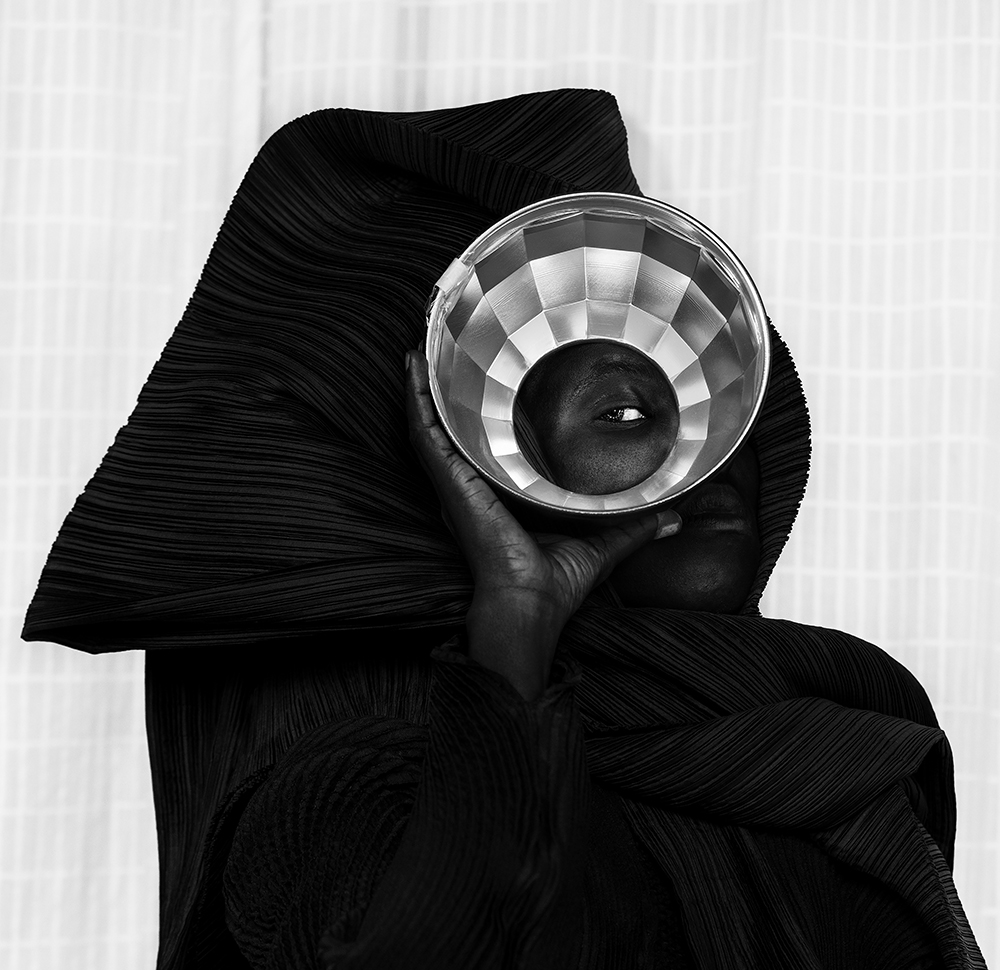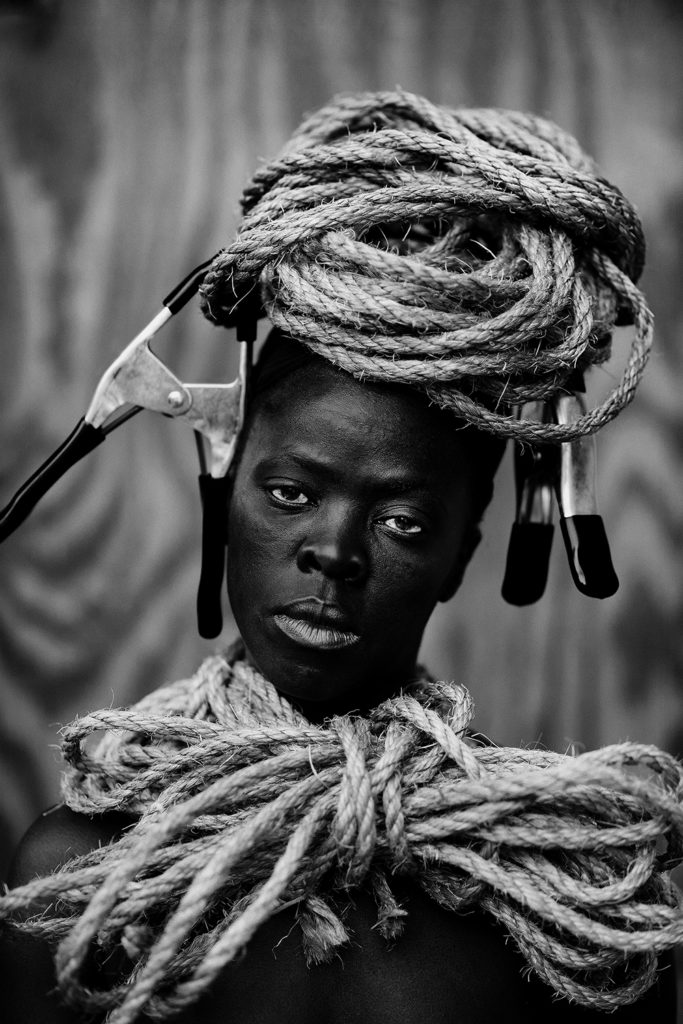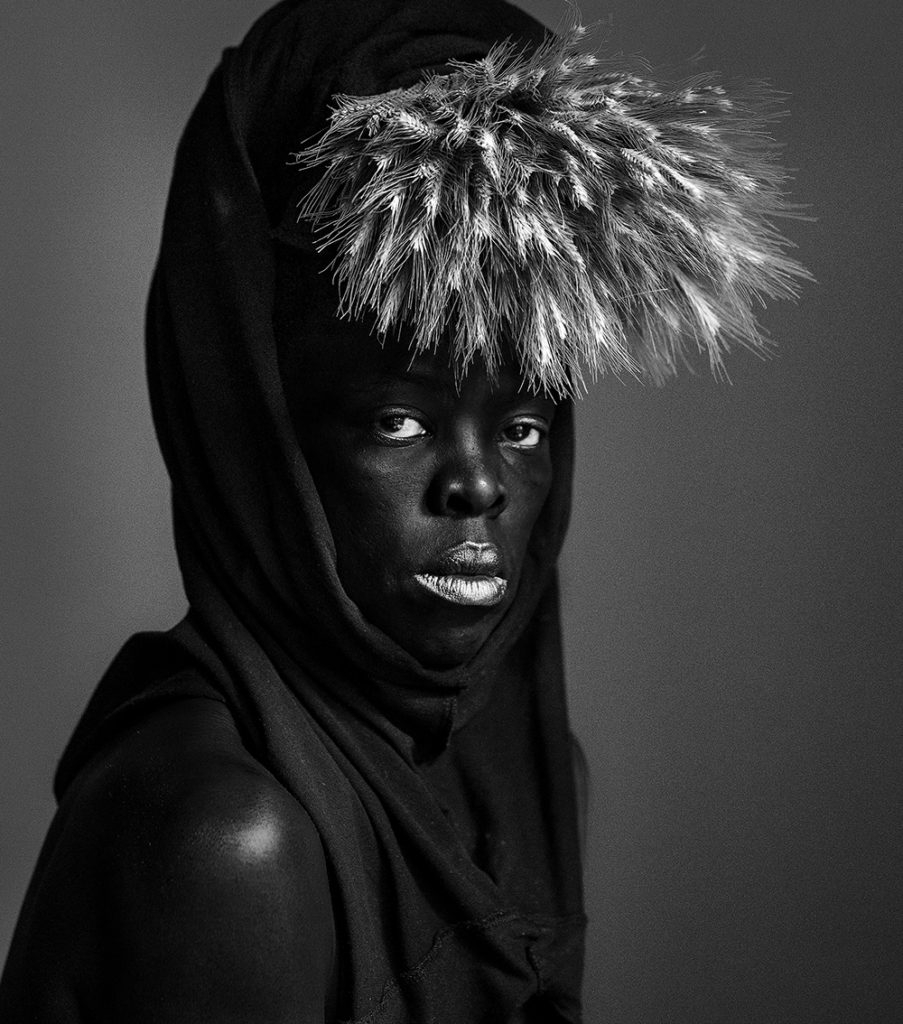Sir Zanele Muholi rises early. It’s 5 a.m. in South Africa and the photographer and self-described visual activist has already been up for two hours. This isn’t atypical—Muholi often wakes up at 3 a.m. and works until 6 a.m., followed by a long walk before breakfast. It’s a schedule built around a hectic life whose pace has intensified over the past few years.
“I am not doing what I do from a comfortable corner,” says Muholi, “I am doing it due to a need.” Muholi is a globally renowned artist who has spent over a decade documenting the experiences of South Africa’s LGBTQ+ community. Yet their latest series of self-portraits turns the lens on the photographer, challenging both themselves and their audience.
Become an S Insider
The latest in fashion, beauty, design, and arts & culture.

Somnyama Ngonyama (“Hail the Dark Lioness”) is an examination of the experiences of black bodies. Each self-portrait in the ongoing series is an alter-ego exploring a different facet of what it means to be black. Many have Zulu names. Muholi—who uses the pronoun “they”—began the series in 2012 and intensified the pace in 2014. As they exhibited in Europe and North America, Muholi encountered racism and profiling, hardships they had experienced growing up under apartheid. “I still have issues as a black person,” says Muholi. “Somnyama Ngonyama exists to change spaces, to change the narrative. To be transparent in spaces where people see, but choose to ignore, the existence of that black body or blackface.”
Muholi, along with David Goldblatt and William Kentridge, has brought South African art to an international audience. Muholi—whose work also includes video and installations— has received France’s Chevalier de l’Ordre des Arts et des Lettres, hence the title of “Sir”. They are an honourary professor at the University of the Arts Bremen, and this spring they were awarded the Rees Visionary Award by Amref Health Africa. Muholi’s work has been exhibited at the Fondation Louis Vuitton, Musée des Beaux-Arts de Montréal, and the Venice Biennale, among others.

Muholi grew up in Umlazi—a township outside Durban—as one of eight children whose mother was a domestic worker for a white family. In the early 2000s, they began documenting the lives of black lesbians in what would become the portrait series Faces and Phases. Their desire to further create a record of black LGBTQ+ experience—and its associated hate crimes—also germinated into Brave Beauties, portraits of transwomen in South Africa. Like Somnyama Ngonyama, both projects are ongoing.
“Oftentimes as photographers, we look at other people and we tend to forget looking at ourselves, and questioning what makes us do what we do,” says Muholi. “I have looked at me—at my body, at self—in different ways and I am learning to love myself, so that confrontation is unnerving, but at the same time it is empowering.”
The portraits of Somnyama Ngonyama have been edited digitally in post-production to be high-contrast, so that Muholi’s skin tone is darkened. In many of them, everyday household objects are used to fashion headgear and body adornments—a crown made of dish scrubs or paper rolls as hair ornaments. At times the effect is regal and defiant, and in other instances it roars with a suffocating violence and vulnerability.

In one, a coarse rope is fashioned into a pussycat bow and knotted menacingly around their neck, while more rope and large metal clamps adorn their head. “Somnyama is my mother,” says Muholi. “Somnyama is my grandmother. People whose voices were never heard, silenced by those who were in positions of power. Somnyama Ngonyama is the black teacher—right in your face—that says to you, what are you looking at? Why do you care? What have you done to me?”
Muholi donates 25 percent of their earnings to activist programs and community organizations. They founded Inkanyiso, a platform for queer and visual activism, and also co-founded the Forum for Empowerment of Women. In 2004, the visual activist launched the Photo XP project in order to train black South African youth and women in photography. This past January, the Mobile School of Photography—an extension of Photo XP—held its first graduation ceremony.
Muholi wants Somnyama Ngonyama to be an archival document for future black and queer artists. In 2018, the series was published in book format by Aperture. With each picture, they reference different moments of history and personal experience, suggesting that these works will live on in posterity for generations to come. “We are not going to wait for someone to define us—we need to define ourselves, because it is us who live this life.”

